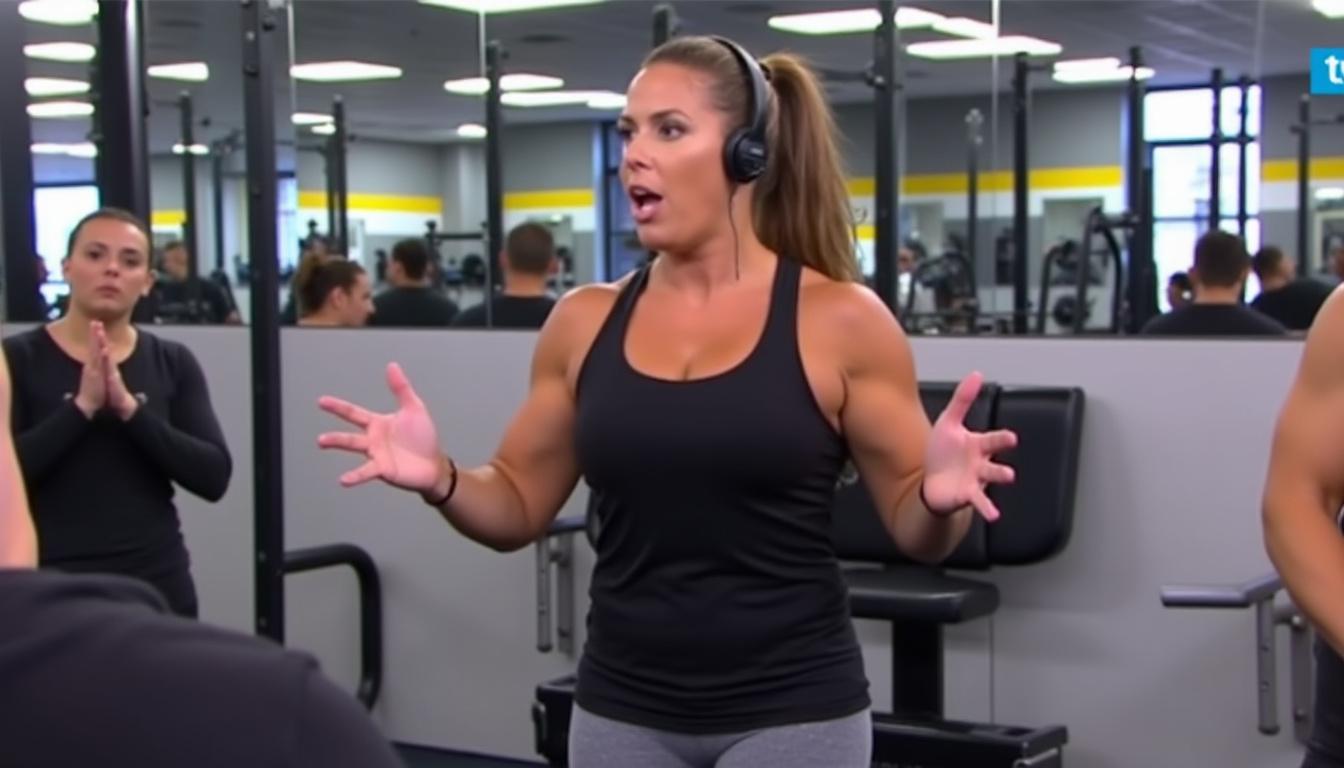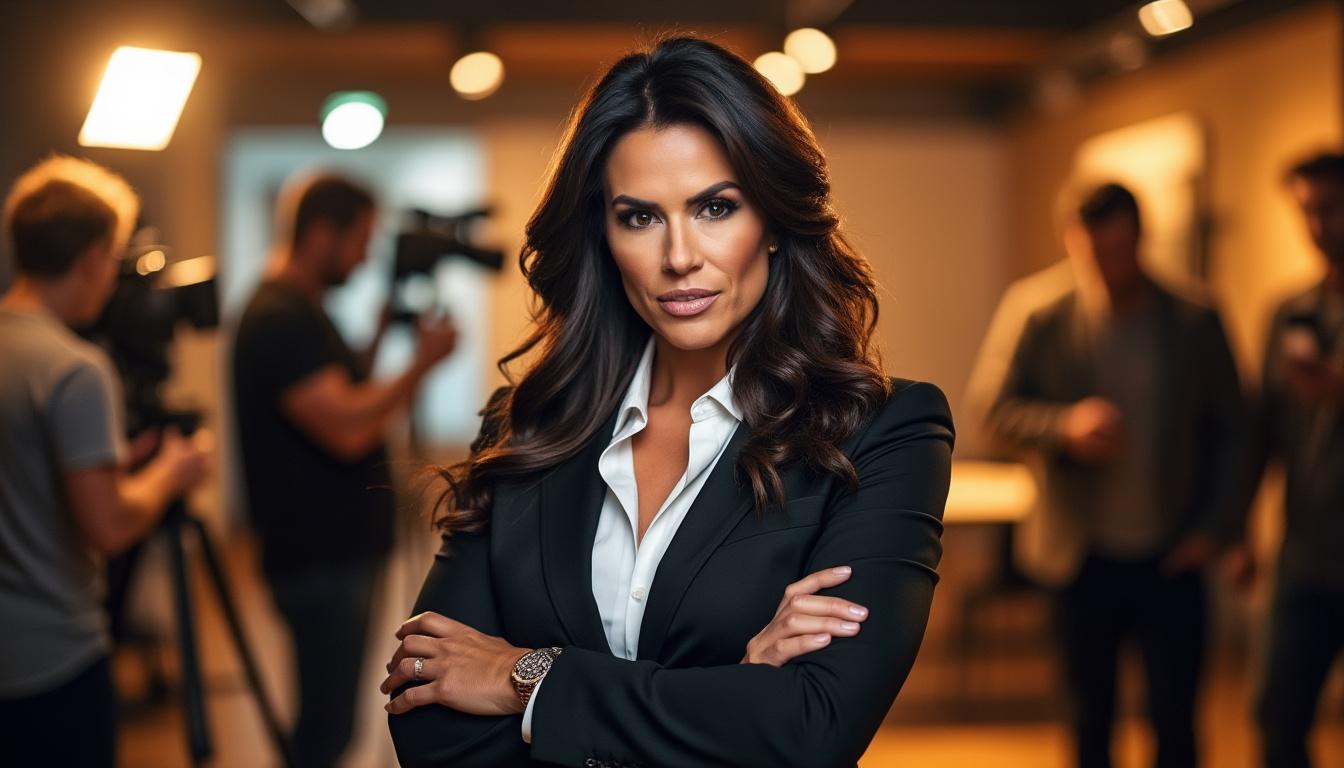The documentary titled Fit for TV: The Reality of the Biggest Loser has stirred controversy in the reality television landscape, particularly for its assertions regarding Jillian Michaels, the former trainer of NBC’s hit series, The Biggest Loser. Now, Michaels has stepped forward to address a multitude of allegations regarding her conduct during the show’s production, including misleading claims about her use of caffeine pills. With a significant portion of the documentary focusing on these issues, the dialogue around the ethical implications of reality TV has intensified. Michaels is adamant that many of the statements made about her are false and that there are misconceptions regarding the practices on set.
Jillian Michaels and the Caffeine Pill Controversy
During her time as a trainer on The Biggest Loser from 2004 to 2011, Jillian Michaels became a household name, known for her tough-love approach to weight loss and fitness. However, the recent Netflix documentary has reignited questions about her methods, especially concerning the alleged distribution of caffeinated weight loss supplements to contestants. In a reaction showcased on social media, Michaels shared documentation she claims disproves these allegations. She asserts that caffeine pills were not banned during her tenure, and in fact, were discussed and approved by Dr. Robert Huizenga, the show’s medical advisor.

In her Instagram posts, Michaels provided what she refers to as an “email chain” that showcases discussions between her, the producers, and Dr. Huizenga. The pivotal point of contention lies in whether she acted inappropriately by providing caffeine pills to contestants, which were reportedly banned by Huizenga due to health concerns. Michaels claimed that her preferred alternatives were much cleaner and posed fewer health risks, suggesting that this decision was made in consideration for the contestants’ well-being.
Understanding Caffeine in the Fitness World
The role of caffeine in fitness and weight loss is frequently debated among health professionals and trainers. Some studies suggest that caffeinated beverages can enhance exercise performance by increasing endurance and reducing perceived effort during workouts. For Michaels, using caffeine wisely could enhance the contestant’s performance.
- Caffeine can boost metabolism temporarily.
- It may enhance physical endurance.
- Many athletes utilize caffeine before workouts to improve performance.
- Understanding dosage is crucial; excess consumption can lead to negative health effects.
Despite these benefits, it remains crucial to consult health experts regarding the appropriate amounts. The controversy around Michaels emphasizes the need for open dialogue regarding what constitutes safe dietary guidelines within the realm of reality television.
Defamation Claims and Legal Action
As a response to the allegations and the impact they might have on her reputation, Michaels is considering taking legal action against the producers of the Netflix documentary. She has indicated that further misinformation might necessitate a lawsuit, emphasizing the seriousness with which she takes her portrayal in media. This legal approach mirrors a common trend among public figures, who often confront media narratives they perceive as damaging or inaccurate.
In an era where personal branding and image are immensely valued, the implications of a documentary can extend far beyond initial viewership. For Michaels, addressing these allegations is not just about public perception; it’s also about safeguarding her business ventures and reputation as a health coach. She has expressed that the stakes are high when it comes to her career and influence in the fitness world. Within the fitness industry, credibility can be both a prized asset and a fragile component.
| Claim | Jillian Michaels’ Response |
|---|---|
| Distributed caffeine pills despite a ban | Claims there was no formal ban on the usage of caffeine. |
| Promised contestants immense financial gain | Calls this claim as entirely false. |
| Starved contestants by limiting caloric intake | Shared correspondence instructing a contestant to consume adequate calories. |
Allegations of Contestant Mistreatment
Michaels vehemently denies accusations regarding mistreatment of contestants, particularly referring to incidents involving Rachel Frederickson, a contestant whose drastic weight loss during season 15 led to widespread criticism. Some allege that such transformations were indicative of unhealthy practices on the show, leading to dangerous outcomes for participants. Michaels asserted that she had expressed her concerns about Frederickson’s health, both to the public and directly to NBC.
In a revealing Instagram post, Michaels shared her communication with NBC’s then-chairman, indicating that there were direct conversations regarding her worries over Frederickson’s health and appearance. The chairman reportedly advised Michaels about the legal ramifications she could face should such concerns not be addressed. Following the incident, she decided to step away from The Biggest Loser entirely, indicating a disconnect between her values as a fitness professional and the direction in which the show was heading.
This incident brings attention not only to the ethics of contestant management but also unveils a significant issue within reality television where the pursuit of ratings often outweighs contestant welfare. Viewers become aware of the implications of trainers’ responsibilities and the blurred lines between entertainment and mental health.
- Understanding the psychological impact of rapid weight loss.
- The responsibility of producers towards participants’ health.
- Repercussions for contestants’ mental well-being.
- Public scrutiny and media influence on personal choices.
The Evolution of Reality TV Ethics
This ongoing saga surrounding Jillian Michaels encapsulates a larger conversation about the ethics of reality television and the treatment of participants. The genre has evolved significantly since its inception, with growing scrutiny surrounding contestant safety, representation, and the responsibilities of producers. The outpouring of criticisms against the portrayal of participants in such shows has led to a reevaluation of practices within the industry.
As the public becomes more aware of mental health issues and ethical concerns regarding weight loss programs, networks are increasingly held accountable for the content they air. Michaels’ response has generated dialogue among viewers and professionals alike regarding what should be expected from reality television producers:
- Full transparency regarding contestant treatment.
- Guidelines to ensure participant welfare.
- Producers’ accountability in portraying a responsible narrative.
- Stronger industry regulations to protect contestants.
This complex narrative speaks volumes about the evolving dynamics in entertainment and fitness. Closing the gap between reality and viewers’ perceptions will require ongoing dialogue and adjustment of standards within the industry.
Future Implications for Jillian Michaels and Reality Television
Jillian Michaels is now at a pivotal moment in her career. The repercussions of this documentary, combined with the growing scrutiny surrounding reality TV ethics, may redefine her public image as a seasoned health coach and professional. As for the industry at large, this situation serves as a critical reminder that reality television must adapt to evolving ethical standards.
In an ever-competitive fitness market, the importance of maintaining credibility and a positive image is paramount for Michaels. As she navigates this challenging period, the question remains—will she emerge unscathed, or will this controversy alter her career trajectory?
With evolving discourse surrounding the portrayal of contestants in reality TV, Jillian Michaels’ actions may serve as a barometer for changes to come. The landscape of fitness, health, and entertainment may indeed witness a transformative shift, influenced by both public sentiment and professional responsibility.


